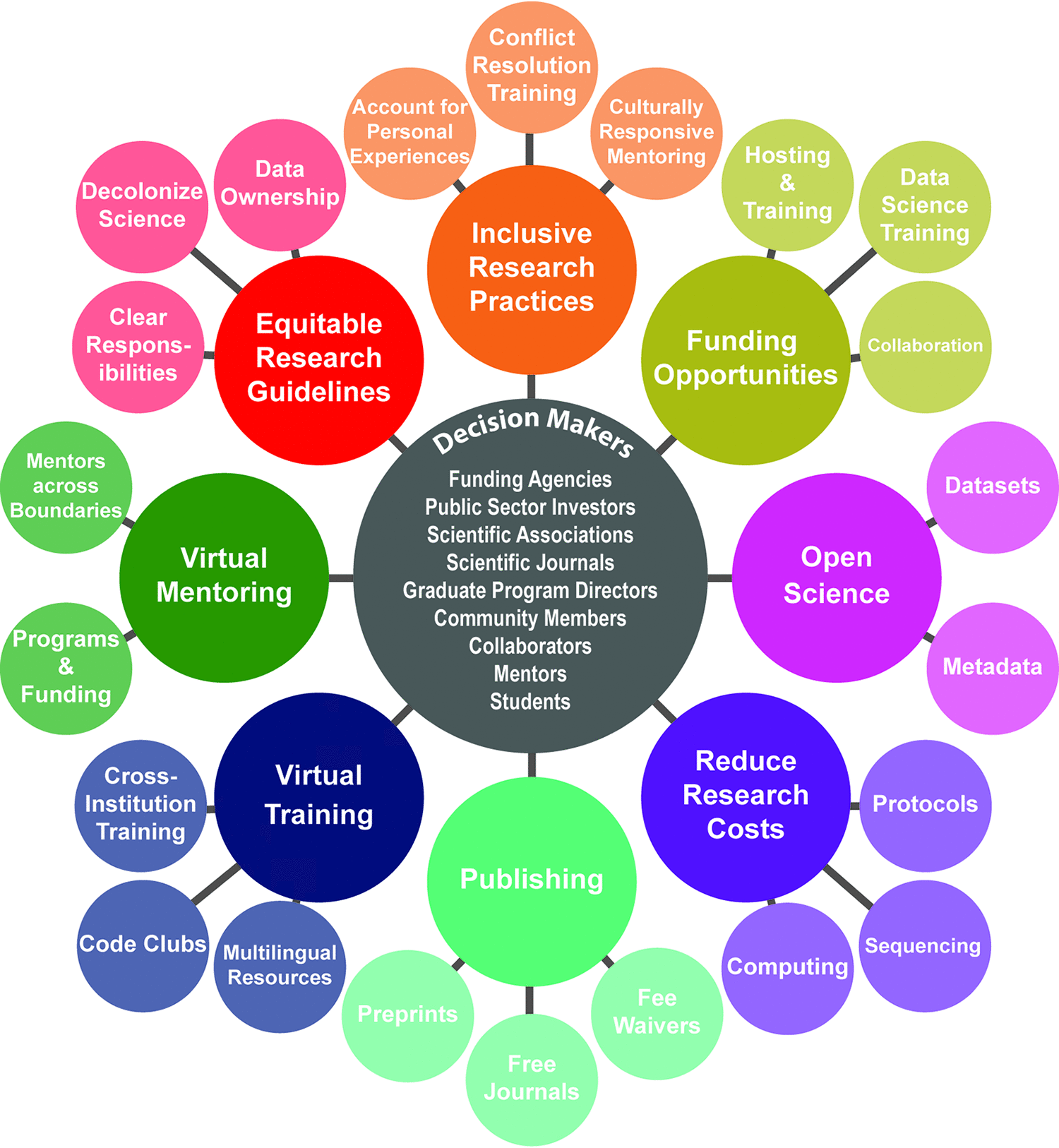
MAKING THE CASE FOR EQUITY IN MICROBIOME SCIENCE
Microbiome research is being applied to important global challenges like pandemic preparedness, infectious disease prevention, climate change, and food security. This research is currently concentrated in a few resource-rich countries (1) which limits the field in several ways. The best solutions to these global challenges come from the work of scientists who understand the cultural and logistical needs of implementing solutions in their communities. The microbiomes of natural, host-associated, and built environments vary geographically, so undersampling large regions of the world limits our understanding of microbial communities (2, 3). This leaves a valuable subset of the microbial biosphere uncharacterized and a valuable subset of researchers excluded. Changes to microbiome science that increase scientific opportunities for persons historically excluded due to ethnicity and people from low- and middle-income countries will improve the quality of research in the field as well as being the right thing to do.
Por: Alicia J. Foxx, Karla P. Franco Meléndez, Janani Hariharan , Ariangela J. Kozik , Cassandra J. Wattenburger, Filipa Godoy-Vitorino, and Adam R. Rivers.






